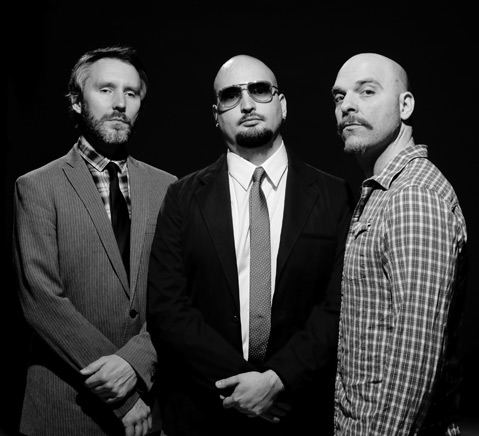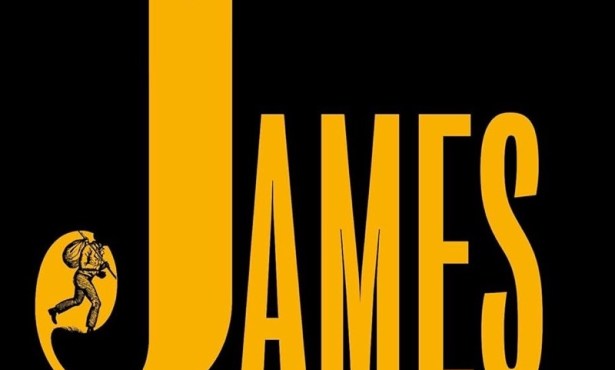Ojai Music Festival Preview
Mark Morris, The Bad Plus, and Stravinsky

As we all have learned at one time or another, it’s not cool to let a major anniversary slip by unnoticed. But don’t feel bad if you failed to celebrate Wednesday’s 100th anniversary of the world premiere of The Rite of Spring. You’ll have a chance to do so in style next week.
Thursday night, June 6, the 2013 Ojai Festival will kick off with a performance of Igor Stravinsky’s masterpiece unlike any you’ve heard before. This seminal piece of 20th-century music will be performed, in its entirety, by the three-man jazz ensemble The Bad Plus.
It’s a perfect way to open this always-adventurous festival, which focuses on contemporary classical music and adventuresome pieces from the fringes of the repertoire. This year’s music director is choreographer Mark Morris, a champion of modern American music, and the weekend will feature many masterpieces made in the U.S.A., including Terry Riley’s groundbreaking minimalist work In C (at 11am on Sat., June 8), and a variety of works by Lou Harrison and John Cage.
Stravinsky was, of course, a Russian, but he settled in America, and his music influenced virtually every other composer represented in the four-day festival. As Reid Anderson, bassist of The Bad Plus, put it, The Rite of Spring “is kind of the jumping-off point for the rest of 20th-century music. It threw those doors open.”
Anderson discussed the genesis of their version of the piece a few weeks back, before performing a concert at the Lobero Theatre. Surprisingly, he said no one quite remembers who came up with the idea of adapting this seminal classical work for jazz trio. He does know it came out of a 2011 residency at Duke University.
“It was presented to us as, ‘Duke would love to do something with you, and they love the idea of The Rite of Spring,’” he recalled. “We had to admit it made a lot of sense, somehow. As much as we tried to find something else that wouldn’t be as arduous to pull off, it proved to be a very attractive idea.”
The trio had adapted several classical pieces in the past, including a portion of Stravinsky’s Apollo. “I think all of us feel a real connection to Stravinsky’s music,” Anderson said. “There’s something so quintessentially modern about it.”
The musicians created their version over eight months. “It was very challenging,” Anderson recalled. “We were tweaking things up to the last second.
“We worked separately, more or less. We all had to make up our own parts. You can’t just take the lowest notes off the score and call it the bass part! We had to really consider the work as a whole.
“Ethan [Iverson, the pianist] worked with the two-piano score a lot, parsing out what he could do as one pianist.” (That two-piano version, which Stravinsky himself created, was performed at last year’s Ojai Festival, by Leif Ove Andsnes and Marc-André Hamelin.)
“I went through it and determined what made sense in terms of what the bass could do,” Anderson continued. “Dave [King] determined how to incorporate the drum set. Then we got together and made adjustments.”
The process, he insisted, was not contentious. “We followed our instincts in terms of the orchestration. If a certain voice needed to be brought out here, and it made sense to play that melody on the bass, we’d do that. It’s all there in the music, really. Stravinsky thought it all out for us.”
So, in the end, is every note they play Stravinsky’s?
“Yes and no,” he said. “For the drums, no. Dave plays an improvised part, based on the score. The bass and piano parts are notated. Every note is Stravinsky’s in a sense, but they aren’t necessarily where he thought they would be.”
“We don’t improvise on the piece, but you have to be an improviser to play it. The kind of group language that we have, the flexibility that we have, the way we hear each other and can go with each other — that’s very much a part of our performance.”
Asked if they hoped to convey what was so startling and fresh about this music a century ago, Anderson noted that it’s a lot more difficult to shock people today.
“We want people to have a visceral experience, for sure,” he said. “We’re not burdened by whatever expectations there are in the classical world of a performance of The Rite of Spring. That’s part of the energy we bring to it. There’s a slight irreverence.
“We don’t handle it with kid gloves.”
4·1·1
The Ojai Music Festival takes place June 6-9 in and around the Libbey Bowl in downtown Ojai. For information on tickets and series passes, call (805) 646-2053 or visit ojaifestival.org.



